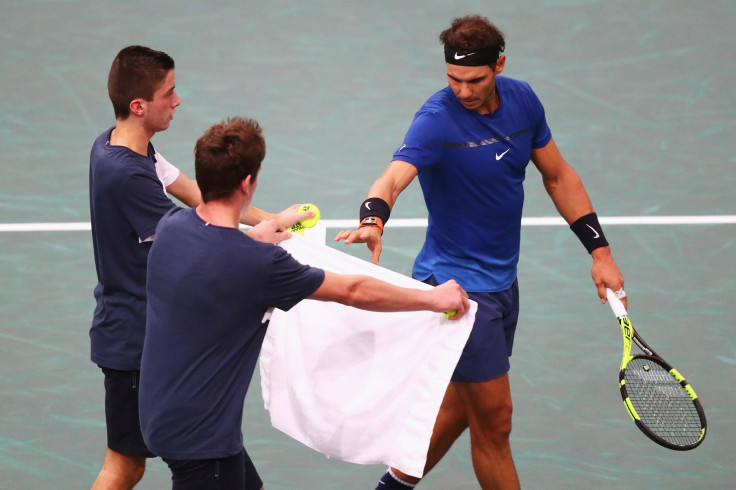Rafael Nadal defied after key rule change is confirmed for 2018 season

KEY POINTS
- Introduction of a 25-second shot clock among a host of rule changes announced by the Grand Slam Board.
- Rules will be first used at the Australian Open in January with the potential for it to be extended.
The landscape of tennis will have shifted by the time the likes of Roger Federer, Andy Murray, Rafael Nadal and Serena Williams all make their respective returns to the sport, following the passing of a host of new rules by the Grand Slam Board.
After holding a two-day meeting in London last week, the GSB announced on Tuesday (21 November) several changes including the awarding of 50% of first-round prize money to injured singles players who withdraw on-site before midday on the Thursday before the start of the main draw.
Previously those who pulled out before the first round were not permitted to collect any prize money, leading to players appearing in their opening matches while clearly injured or unfit.
This was a row that raged particularly strongly at Wimbledon, which saw no fewer than eight first-round retirements in 2017.
Other alterations include potential sizable fines for players who retire or perform "below professional standards" in first-round matches, the strict enforcement of the timing of the pre-match warm-up and a plan to revert back from 32 seeds to 16 from 2019.
Another key change was the GSB's decision to introduce 25-second shot clocks at the 2018 Australian Open in January.
"It was unanimously agreed to support 2018 Australian Open's application to the ITF (International Tennis Federation) for a waiver of the 20 seconds between points required by the Rules of Tennis, in order to allow for enforcement of a strict 25 seconds utilising a 'serve/shot clock' system in line with that trialed at the 2017 US Open," the GSB confirmed.
Such a shot clock, which was tested at the US Open's junior and collegiate events and again at the ATP Next Gen Finals in Milan, could prove an issue for players like Nadal, who is known to take a long time between points and often incurs slow-play warnings from umpires.
Speaking on the issue back in August, the 16-time Grand Slam winner warned over the impact that the use of shot clocks would have on the entertainment value of matches at major events.
"It depends on what the fans want. If the fans want short points and players playing without thinking, maybe it is good," he told PA Sport.
"If you want to have matches like I played here with Novak [Djokovic], the three finals, the kind of match that the crowd is more involved in because the points are so long, well, you cannot expect to play 50-shot rallies and in 25 seconds be ready to play the next tennis point.
"I think that's not possible for a great show. But if you don't want a great show, of course it's a great improvement."






















